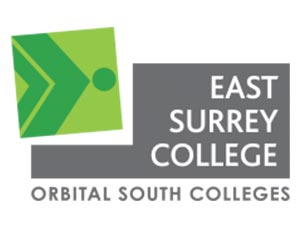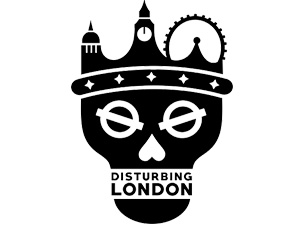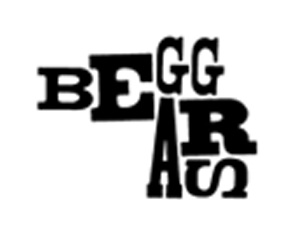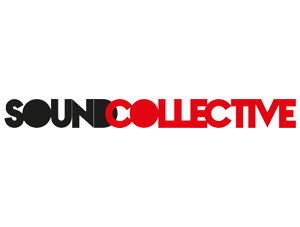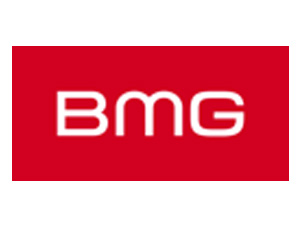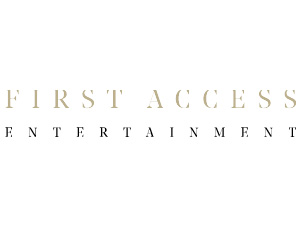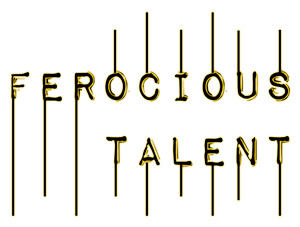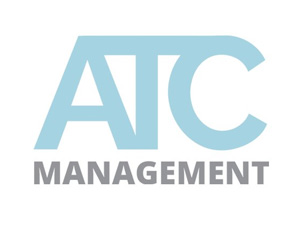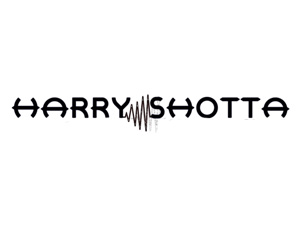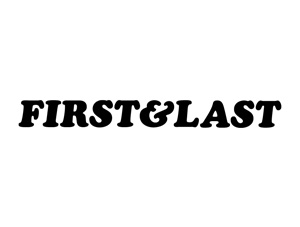COURSE SPECIFICATION and REQUIREMENTS
Length of Course: 9 months
Study Mode: Full Time
Course Start Date: September 2024
Entry Requirements: Two A-Levels at C grade/equivalent, Level 3 qualifications, or relevant music industry experience
Qualification: Commercial Songwriting – Certificate in Higher Education, Level 4
Awarding Institution: Rose Bruford College
Assessments & Credits: 6 Assessments totalling 120 credits
Fees and Funding: £9,250, loans are available www.slc.co.uk (Student finance is available to eligible NHAM students for our Level Four Courses with Rose Bruford College. Available Tuition Fee Loans cover the full course fee. Maintenance Loans are also available to eligible students to assist with living costs for the duration of the course).
Applications: Directly to Notting Hill Academy of Music
Commercial Songwriting
(CERT HE)
This course offers you the opportunity to study the art of songwriting and producing your own music whilst situated at the heart of the music industry. You will be taught by working industry-experts and informed by a range of dynamic music business experiences at labels, working with music executives and artists. The curriculum covers a full range of current industry areas and themes that give you a broad contextual understanding of the modern music industry, using the industry standard software to create and build your portfolio of music and the business skills to develop your career. Beginning with an introduction to the cultural contexts from which songwriters emerged, you will then have the opportunity to develop your own songwriting craft through studying the styles and structures of other artists, key musical components and compositional techniques to make your songs industry-ready.
The Cert HE in Commercial Songwriting offers you the opportunity to study the art of writing and producing your own music whilst situated at the heart of the music industry and with the opportunity to experience professional contexts directly. You will be taught by working industry-experts and informed by a range of dynamic music business experiences at labels, in studios and working with music executives and artists. The curriculum covers a full range of current industry issues and themes that give you a broad contextual understanding of the modern music industry, using the industry-standard software to create and build your portfolio of music and the business skills to develop your career. Beginning with an introduction to the cultural contexts from which songwriters emerged, you will then have the opportunity to develop your own songwriting craft through studying the styles and structures of other artists, key musical components and compositional techniques and using industry standard production software to make your songs industry-ready.
Just as the course is a blend of music industry knowledge, alongside the development of professional A&R and Songwriting skills, you will also be taught by both academics and specialist industry practitioners directly at the heart of the industry. Notting Hill Academy of Music seeks to give you an immersive music industry experience and get your music exposure in the right circles. All your lecturers are working industry professionals and will teach the specialist subject relevant to their own career. Your assignments have been developed to reflect the real world of creating music and working within the industry, ensuring that you develop the skills you’ll need to succeed in the professional world. Central to the ethos of this course, is the aim to get you ready for industry by giving you access to it from the start.
Depending on your progression choices after Level 4, as a graduate, you will be able to enter a range of music industry professions equipped with the industry knowledge, academic and industry skills that companies require. Notting Hill Academy of Music alumni have gone on to work as artists, songwriters and producers, in A&R, record labels, copyright, streaming services and talent/creative management.
SONGWRITING
This module encourages you to reflect on your own songwriting and its development by giving you a professional grounding in the key elements of songwriting. Working independently, with others and also with a brief, as you might with a label, you will explore the way in which you can be inspired and influenced by techniques and musical elements from a range of different genres. Your study of styles and genres will also support this development. Being a writer /producer/artist isn’t just about making your own music, it’s about using your skills and creativity to bring your work to life and to influence others too. It’s also an excellent way to diversify your income and grow your audience!
In this module you’ll develop your DAW skills, but also your project planning, collaboration, influence, communication and leadership skills. You will learn to adjust your creative vision to support the creative vision of those you are working with too, and showcase your skills in making the work of another songwriter or artist industry-ready and commercially viable. An indicative programme of lectures might include:
- Songwriter/artist and Songwriting/producer.
- Song structure and arrangement.
- Melody, riff and hook.
- Harmonic structure, bassline and cohesion.
- The DAW and production techniques for songwriters: creating, editing and layering tracks.
- The DAW and production techniques for EDM/beat-based songwriting.
- Song structures and arranging 1.
- Song structures and arranging 2.
- Mix techniques: Creative EQ/Dynamics and FX.
- Creating and exporting the final mix.
- Remixing techniques (extended and creative edits, versioning, introducing samples).
- Manipulating parts and stems and collaborating with others.
NAVIGATING THE MUSIC INDUSTRY
From sheet music to streaming. How did the music industry landscape you see today emerge and what is the history of the songwriters/producers and artists you admire? This module will give you the knowledge and understanding of the modern music industry by helping you understand its past and also the evolution of its current structure. This will help contextualise your learning and also understand your place within the industry as a creator, artist, songwriter and entrepreneur. It will also get you to think about the various ways in which your knowledge of these key areas of the music business will intersect with your career.
An indicative lecture programme for this module will include:
- The early music industry: the roots of A&R, and the history of songwriting.
- The Digital Revolution: Napster, iTunes, Spotify and the rise of the DAW and DIY artist.
- Music publishing – The majors and Disrupters.
- The Record Label – the Majors & Indies, label services and DIY.
- The Live industry.
- Discovery & Development – getting signed and career opportunities.
- The Role of the Manager & Agent.
- Going social: Direct to Fan & Fan to Fan. Sustaining your own career.
- Marketing and Promotion.
- The future of the industry: trends, data and analysis
BUILDING YOUR PORTFOLIO
Studied alongside Songwriting, this module requires you to develop your songwriting portfolio and experience more widely. In this module, you’ll be concentrating on deliberately building your repertoire of songwriting skills independently as well as collaboratively.
In this module you’ll develop your DAW skills, but also your project planning, collaboration, influence, communication and leadership skills. You will learn to adjust your creative vision to support the creative vision of those you are working with too, and showcase your skills in making the work of another songwriter or artist industry-ready and commercially viable. An indicative programme of lectures might include:
- Starting a project: inspiration and planning.
- Song structure and arrangement.
- Topline and melody building.
- Writing to a track.
- Writing to a brief.
- Lyrics and rhyme.
- Harmony and chord progressions 1.
- Harmony and chord progressions 2.
- Analysing genres 1.
- Analysing genres 2.
- Songwriting for bands/ensembles 1.
- Songwriting for bands/ensembles 2.
PRODUCING THE SONG
You may know the songwriting and production and techniques to write and create a track, but releasing a final creative work needs the effort and vision of the producer. An understanding of song structure and the way in which the musical and technical elements of the track can combine will elevate your track beyond the bedroom songwriter’s efforts. If you want to monetise your skills, you need to understand how to take your tracks from sound files, to release.
This module will introduce you to a range of techniques that bring together the musical (composition and arrangement) techniques you studied in previous modules, with the technical audio techniques (dynamics, EQ and FX in the final mix and mastering) that can help you ensure your creative vision is realised in the studio. The role of the songwriter/producer/artist/collaborator is to see the whole project from a range of perspectives, including the commercial.
- The role of the artist/songwriter/producer.
- Refining song structure and arrangement.
- Defining styles: Making Disco/Techno/House/Trance.
- Defining styles: Making Hip Hop/Rap.
- Defining styles: Making UK Urban Beats.
- Defining styles: Making commercial R&B, Pop.
- Writing for the screen (film, TV, advertising).
- The overall sound – matching technique to genre.
- Your music’s journey, from studio to release.
- Pitching to the professionals, positioning yourself and your career.
- Commercial contexts and diversifying your skills.
CREATIVE BUSINESS
The role of the songwriter/artist is part songwriter, part engineer, part influencer, part artist and part business entrepreneur. Not only can you be responsible for the music you create and release, you can also influence and create music for others, and in collaboration with others. You may be an artist in your own right, whilst also employed by a label to write music for others. An understanding of the key business structures of the music industry will help you navigate the different ways in which a songwriter/aritst can work and monetise their skills and creative efforts. Songwriters are often able to realise an artist’s creative vision, whilst also balancing the commercial aspirations of the record company. As such, songwriters often have different financial arrangements when it comes to copyright and royalties. The avenues open to you as a songwriter and collaborator also mean that you are able to monetise the music you create for yourself and others through music publishing in different ways too.
This module will help you understand the different revenue streams available to you and the ways in which you can not only create and release music yourself, but also how to work with larger music industry businesses (artists, managers, labels, publishers and collection societies) to maximise your income and your influence within the industry. By thinking of yourself, your skills and the music you create and help others create as a business and knowing how to articulate and promote this, you will gain the skills that mean you can begin to develop your career from the start.
An indicative programme will comprise:
- Thinking like a business: maximising your potential and the role of the songwriter/collaborator/artist.
- Music business landscape 1: The label, A&R, producer/artist, collaboration.
- Music business landscape 2: copyright and collections societies.
- Music business landscape 3: Publishing and points.
- Collaboration: legal, IP and protecting your investment.
- Success stories: key producer/artists.
- The business plan: monetising your music.
- The business model: start-up structure and keeping it lean.
- Media, marketing and promotion.
- Business finance for non-finance experts.
- Pitching to others.
- Key responsibilities as a business owner: reporting, key dates, tax and finance.
CREATIVE AND CULTURAL PERSPECTIVES
The history of Popular Music is rich and multicultural. Popular music is increasingly bound in the technology that creates it, with songwriters and artists able to use technology to create, distribute, promote and sell their own music and brand. An understanding of the genre’s diverse history will help give you a deeper understanding not only of the origins of the music you want to create, but the techniques and classic sounds that evolved and now characterise it.
We’ll be focussing on those aspects of creative and critical theory that are intertwined with the industry and songwriting such as subculture, style and genre and the history of music technology. We’ll also explore trends and taste from a consumer perspective and look at the global industry. An indicative lecture programme relating to this module will comprise:
- A brief history of Pop from Tin Pan Alley to AI.
- Cultures and subcultures.
- Styles, genres and their evolution.
- Commercialism and Commerce.
- Studying the consumer, audiences, the history of trends and defining taste.
- Creative digital perspectives.
- The digital creator: machine and producer as artist.
- Integrating critical perspectives creatively.
- Sounds from history: the origins of what we hear now.
- Equity and diversity in music.
- The global music industry, different territories, genres and perspectives.



